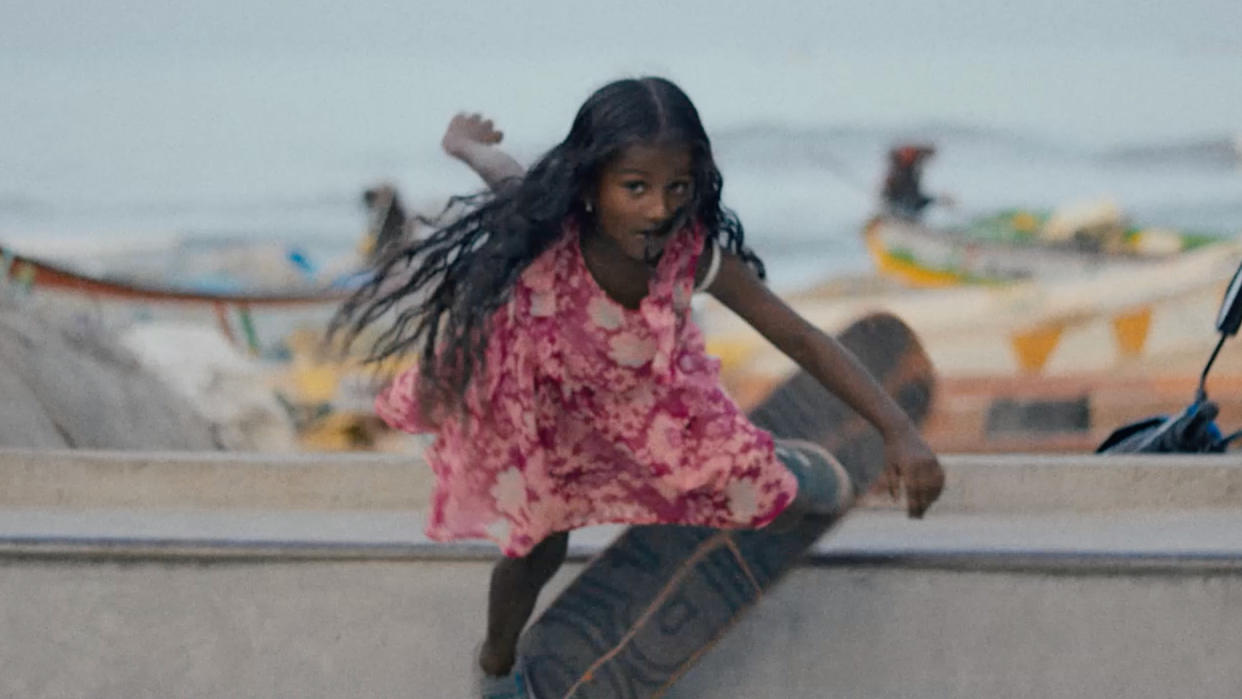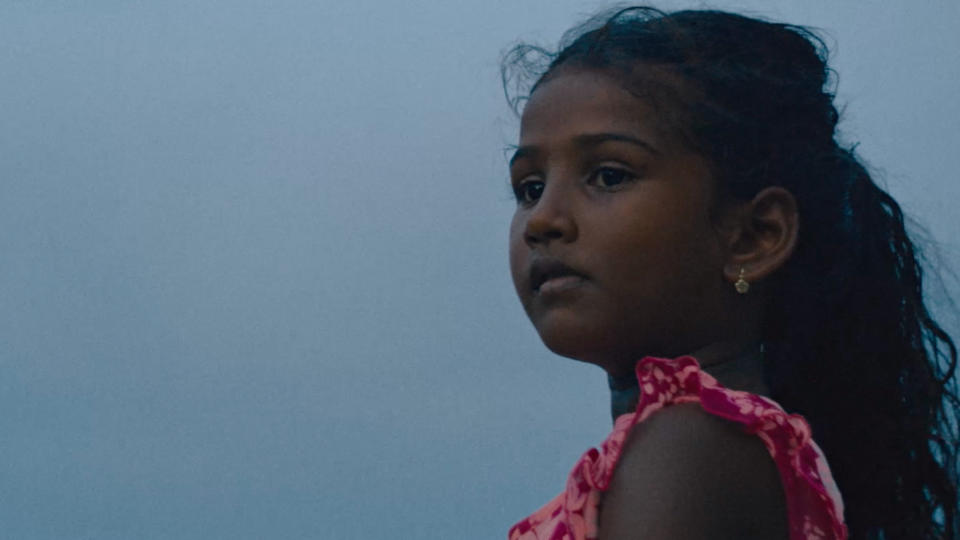'Kamali': Inside the 'radical' world of an Indian skateboarding girl

Skateboarding has always carried the connotation of rebellion, and of non-conformity — from Bart Simpson to Marty McFly. And now, the latest symbol of the importance of skateboarding for breaking free of socially-imposed boundaries is a nine-year-old Indian girl called Kamali.
She is the subject of a new short documentary film, helmed by director Sasha Rainbow, which explores the relationship between Kamali — then just seven years old — and her mother, Suganthi, who is making many sacrifices to empower her daughter through the sport she loves.
Read more: Keira Knightley gives details of “timely” feminist comedy
For Rainbow, whose film is nominated for Best British Short Film at this year’s BAFTAs, there’s real significance in the act of skateboarding, which she says speaks to “the wider feminism taking hold of the world”.
“As a woman in her thirties who started skateboarding a few years ago, it’s been incredible to witness the kind of reactions I stir up in the general public, from praise to scorn,” says Rainbow. “Maybe radical is the right word.”

She adds: “As the film shows, only a generation ago women were expected to be married by their late teens in India. So skateboarding is this visual representation of rebellion that represents the massive generational change happening in India right now.”
Rainbow first met Kamali and Suganthi while she was in India shooting a music video for British band Wild Beasts — specifically, their track Alpha Female. She had seen a picture of Kamali skating in a dress and attempted to track her down to appear in the video, causing her and her mother to leave their small village for the first time in order to shoot in Bangalore.
“By the end of our conversation, I was in tears,” says Rainbow. “I knew we had to find a way to come back and make a documentary about their relationship and everything Suganthi is trying to do to empower Kamali.”
She adds: “[They] really seemed to represent the massive change happening in India right now, and how it can take one person breaking a cycle to create major positive change all around them.”
Kamali is far from the first movie to focus on skateboarding in recent years, from documentary Minding the Gap to the similarly female-orientated Skate Kitchen and Jonah Hill’s directorial debut Mid90s. According to Rainbow, it’s the “violent” nature of skateboarding that makes it such a compelling subject — a sport that requires you to fall over and even draw blood in order to get better at it.
Read more: Faux feminism in blockbusters needs to stop
“That’s why it brings people together and sets them apart, because there are only a small amount of people willing to dedicate themselves,” she says, adding: “It teaches you that failures are all part of the journey to success, whatever that may be.”
Rainbow says skateboarding serves a particularly important position for women, being used as ”a tool for cultural change and female empowerment in patriarchal societies”. Although she admits she’s “a little uncomfortable” with the idea of her movie being a vehicle to provide marginalised people with a voice, she says the “bravery” of Kamali and Suganthi has inspired her to explore her own immigrant background more thoroughly in a future film.

As for the future of Kamali herself, Rainbow says she’d love the chance to tell her story in a feature-length movie, describing her protagonist as “India’s answer to Moana” and proposing a “fictional, fantastical Bollywood version” of the character’s life story.
Read more: Winners from the British Independent Film Awards
But her documentary also hopes to make a change in a material way, as well as highlighting the broader themes. It ends with a call to action, urging audiences to “get involved” and directing them to the movie’s official website. Rainbow hopes to be able to establish a long-term infrastructure to empower girls in India.
She says: “We are currently working with the community to try and build a new, larger skate park so that Kamali is able to improve her skateboarding level without having to leave her family. She's also started teaching other young girls so they need plenty of room for them all.”
It seems the legacy of Kamali will stretch further than the confines of the film itself, especially if it does win awards season gold.
Kamali presented by Verizon Media's RYOT, is available to watch here.


